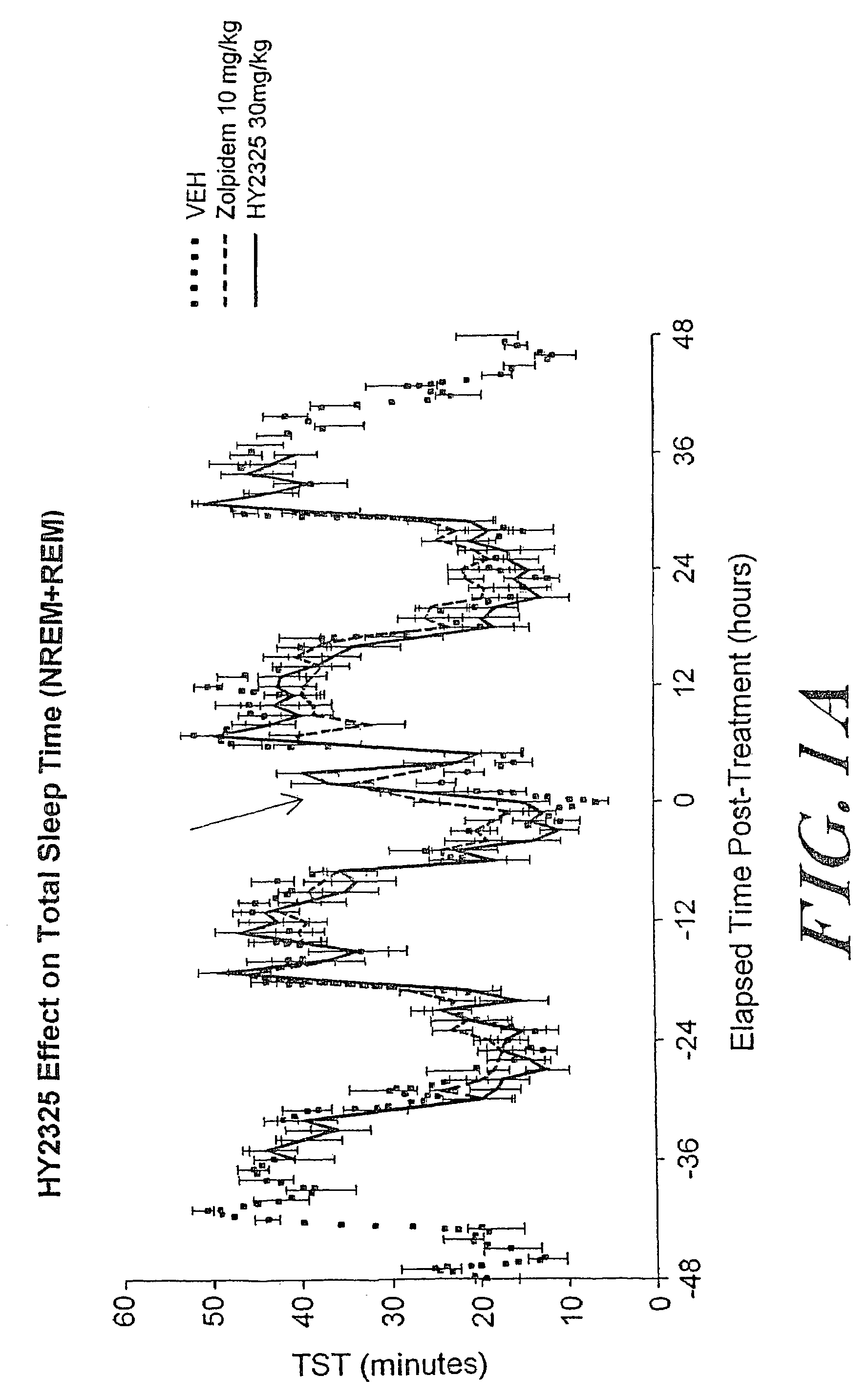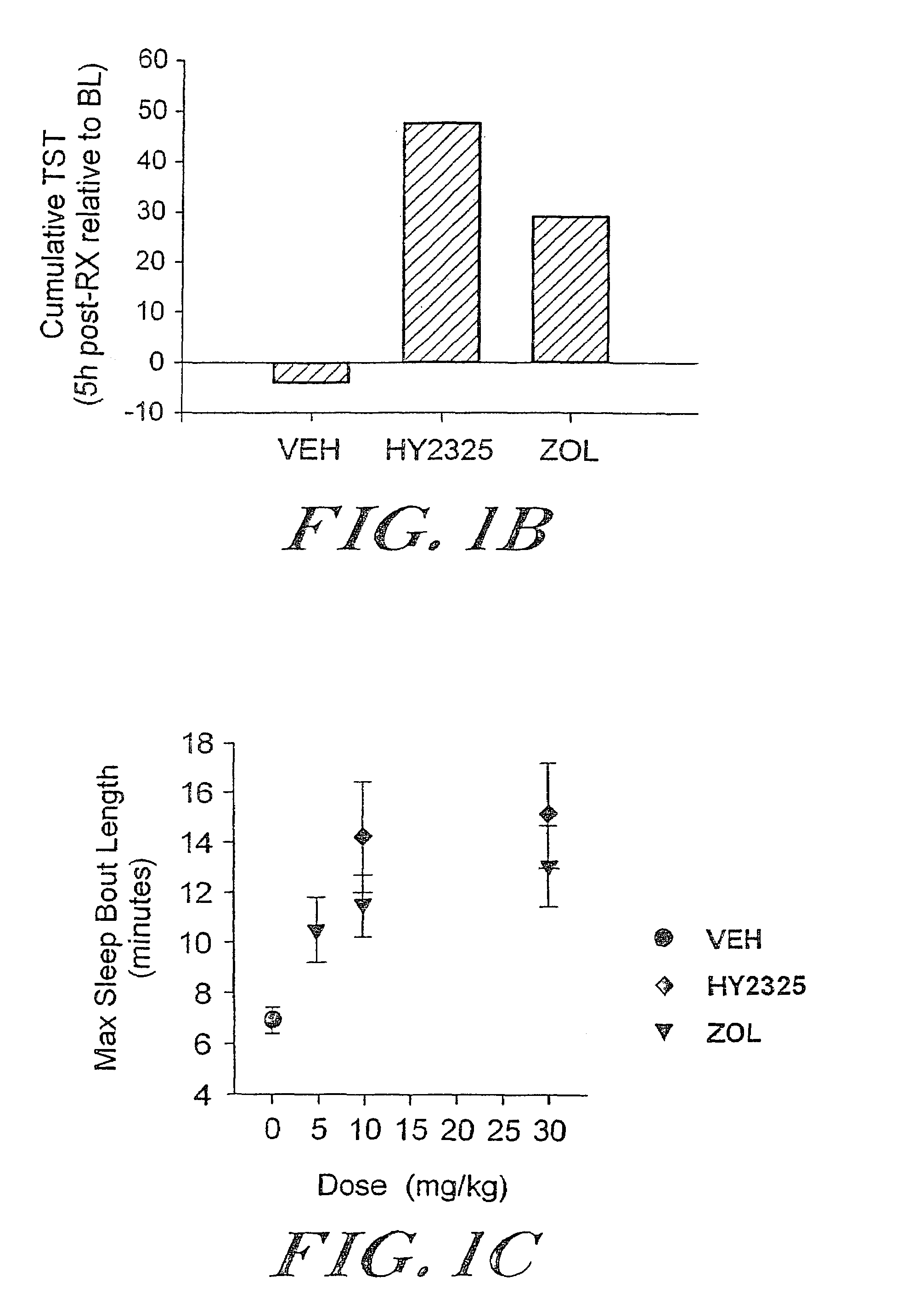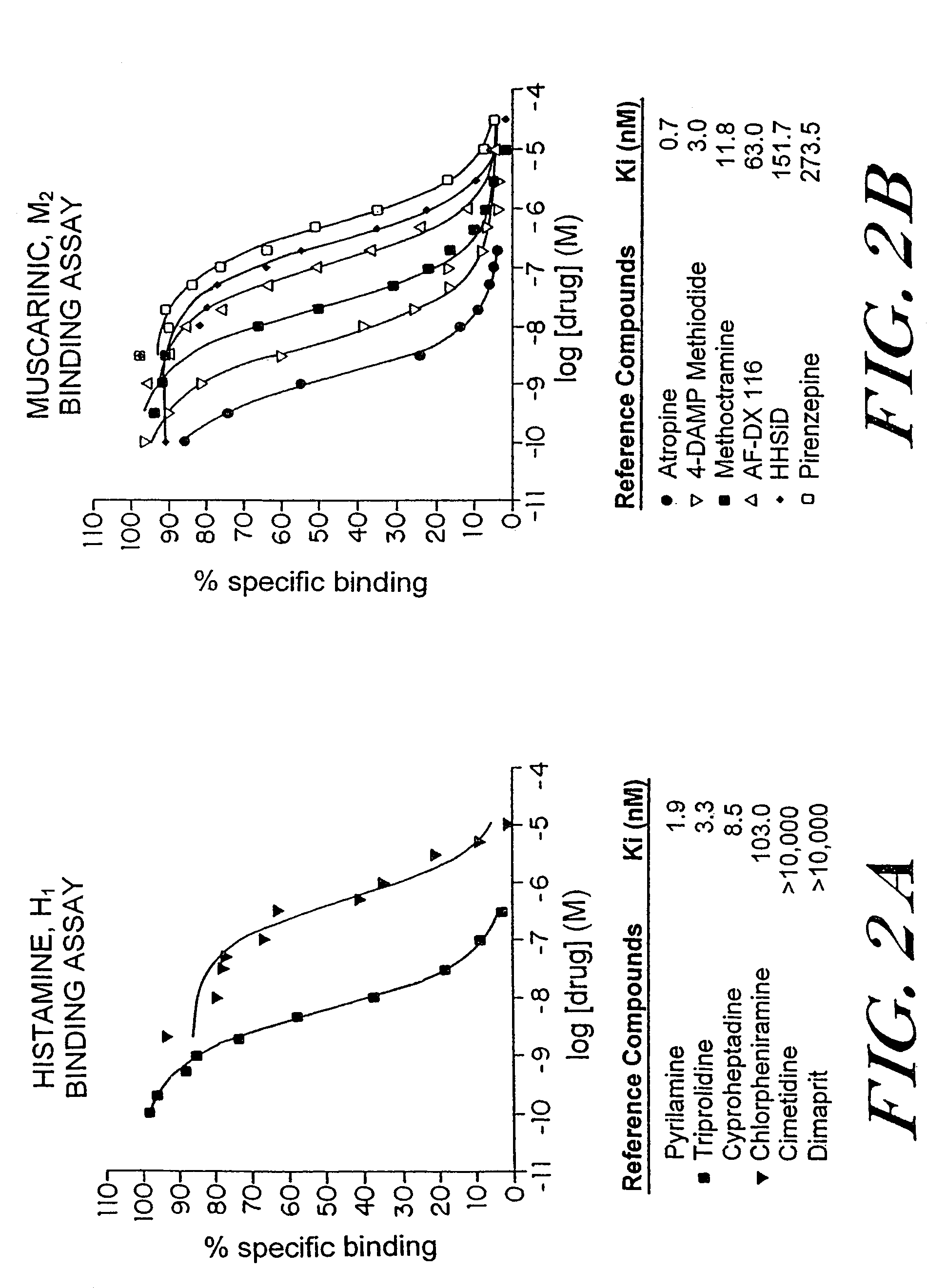CNS target modulators
a target modulator and modulator technology, applied in the direction of biocide, cardiovascular disorder, drug composition, etc., can solve the problems of persistent medicative effects and abnormal sleep behavior, and achieve the effect of reducing side effects
- Summary
- Abstract
- Description
- Claims
- Application Information
AI Technical Summary
Problems solved by technology
Method used
Image
Examples
example 1
Synthesis of Antihistamine Intermediates
[0172]Several synthetic protocols for compounds of the invention are shown below and are further depicted in Scheme 2.
[0173]4-[diphenyl(hydroxy)methyl]-1-methylpiperidine (2). A solution of benzophenone (60 g, 0.33 mol) in anhydrous THF (200 mL) was added dropwise over a period of 20 min to a Grignard reagent that was prepared from 59 g (0.44 mol) of freshly distilled 4-chloro-1-methylpiperidine, Mg (1.3 mol) in THF (1 L). After stirring overnight, the reaction mixture was quenched (H2O, then dilute HCl) and extracted (2×500 mL) with ethyl acetate. The combined organics were dried with Na2SO4, filtered, and evaporated to dryness to give 89.5 g of alcohol 9. This alcohol was used without further purification. The structure was confirmed by 1H NMR.
[0174]4-(Diphenylmethylidene)-1-methylpiperidine (1). Alcohol 9 (27.3 g, 97 mmol) was suspended in concentrated HCl (360 mL) and heated at reflux (oil bath temperature above 96° C.) for 2 h. The mixtur...
example 2
Pheniramine-like Series 11 Experimental
[0180]Isobutyl 3-[4-(diphenylmethylidene)piperidin-1-yl]propanoate (11e). A solution of 20 (0.782 g, 3.14 mmol), isobutyl acrylate (0.56 mL, 3.89 mmol) and ethanol (5 mL) was shaken at 75° C. for 2 h, then evaporated to dryness to give 1.04 g of 11e as a viscous yellow oil that was used without further purification. The structure was confirmed by 1H NMR. (Propanoate esters 11b, 11c, and 11f were similarly prepared (see synthesis of cyclopentyl acrylate in the Scheme 6).
[0181]Isopropyl 3-[4-(diphenylmethylidene)piperidin-1-yl]propanoate (11d). Sodium hydride (60% dispersion in mineral oil, about 15 mg) was added to a stirred solution of 11b (1.20 g, 3.5 mmol) in 2-propanol (15 mL). Although after 1 h there was no insoluble solid, TLC showed evidence of degradation to the acid 11a, and the mixture was then stirred for an additional 48 h. The mixture was concentrated, suspended in a small amount of 1:1 heptane:ethyl acetate, filtered to remove ins...
example 3
Pheniramine-Like Series 13 Experimental
[0185]Methyl 3-[4-(Diphenylmethyl)piperidin-1-yl]propanoate (13b). A solution of methyl acrylate (699 mg, 8.12 mmol) in MeOH (3 mL) was added to a solution of 22 (1.99 g, 7.92 mmol) in MeOH (8 mL). After shaking at 75° C. for 3 h, the reaction mixture was evaporated to dryness. Chromatography over silica gel (4:1 heptane / EtOAc) gave 2.54 g of 13b as a colorless viscous oil, which crystallized on standing. The structure was confirmed by 1H NMR. (Propanoate esters 13c and 13e were similarly prepared.)
[0186]Isopropyl 3-[4-(Diphenylmethyl)piperidin-1-yl]propanoate (13d). A dispersion of NaH (˜20 mg of a 60% oil dispersion) was added to a solution of 13b (799 mg, 2.37 mmol) in isopropyl alcohol (10 mL). The resulting mixture was immediately stoppered tightly and stirred at RT for 2 h. The reaction mixture was evaporated to dryness and chromatographed over silica gel using 3:1 heptane / EtOAc to give 0.75 g of 13d as a colorless viscous oil. The struct...
PUM
 Login to View More
Login to View More Abstract
Description
Claims
Application Information
 Login to View More
Login to View More - R&D
- Intellectual Property
- Life Sciences
- Materials
- Tech Scout
- Unparalleled Data Quality
- Higher Quality Content
- 60% Fewer Hallucinations
Browse by: Latest US Patents, China's latest patents, Technical Efficacy Thesaurus, Application Domain, Technology Topic, Popular Technical Reports.
© 2025 PatSnap. All rights reserved.Legal|Privacy policy|Modern Slavery Act Transparency Statement|Sitemap|About US| Contact US: help@patsnap.com



